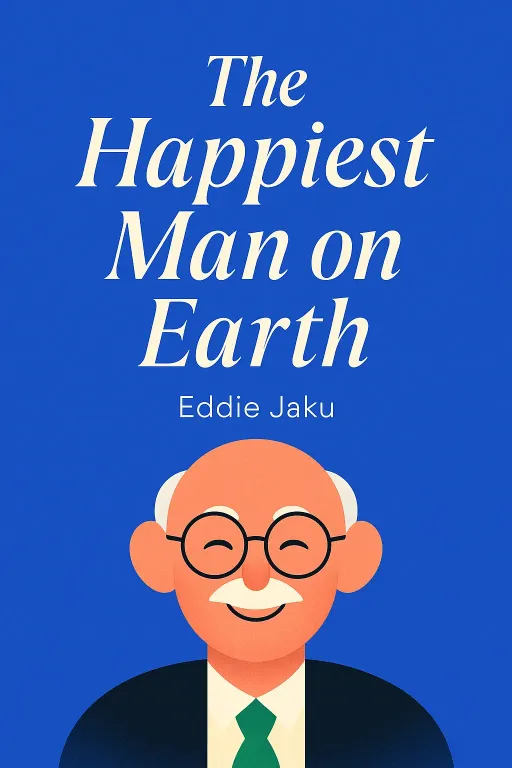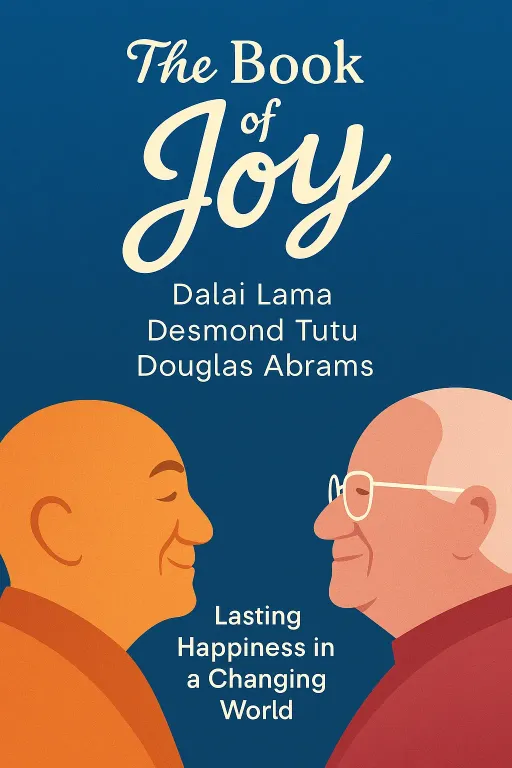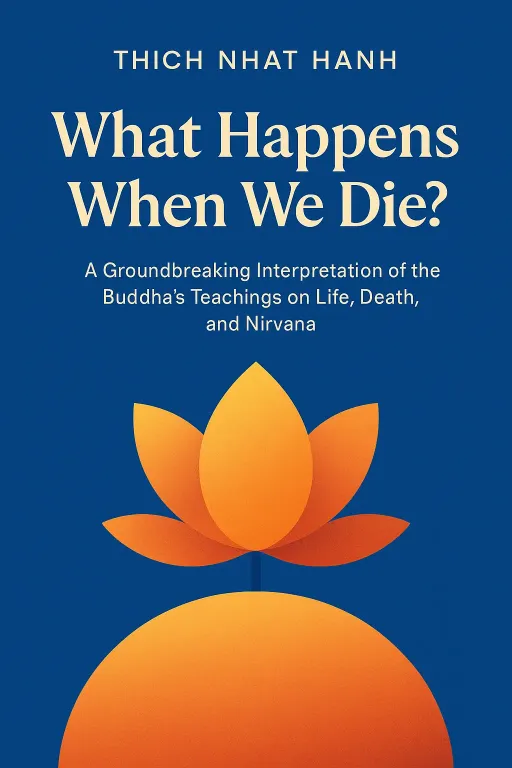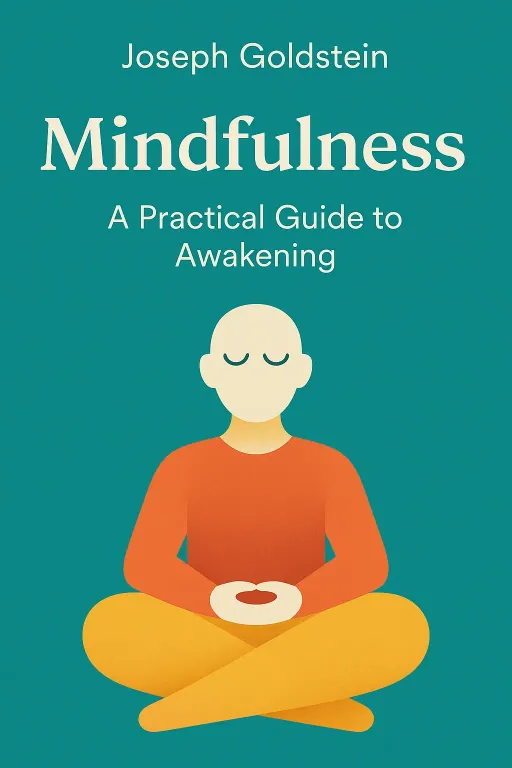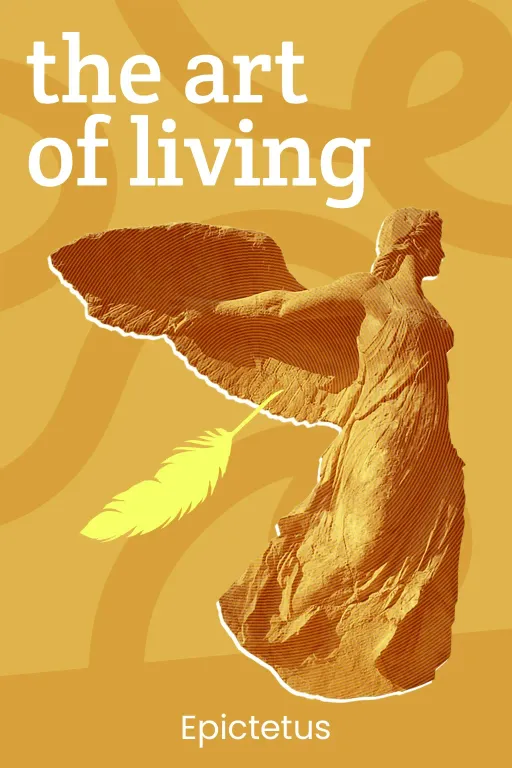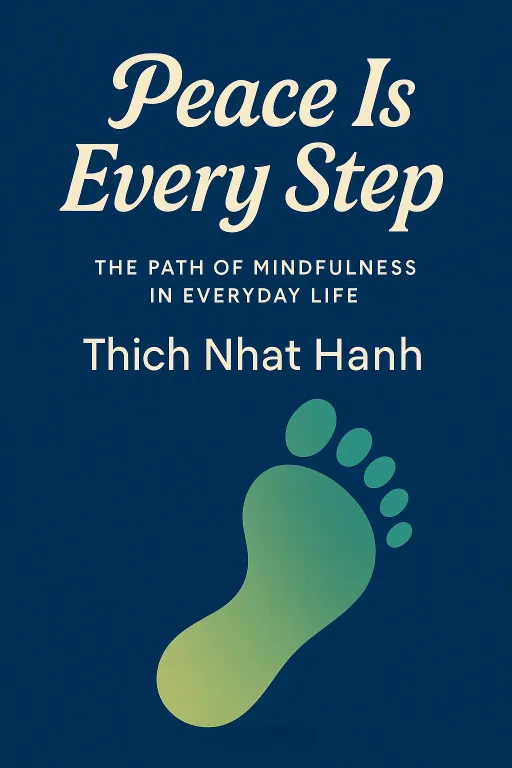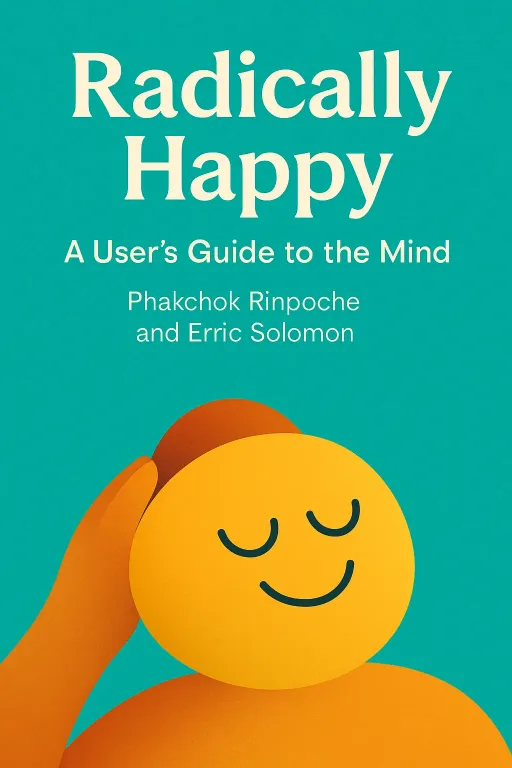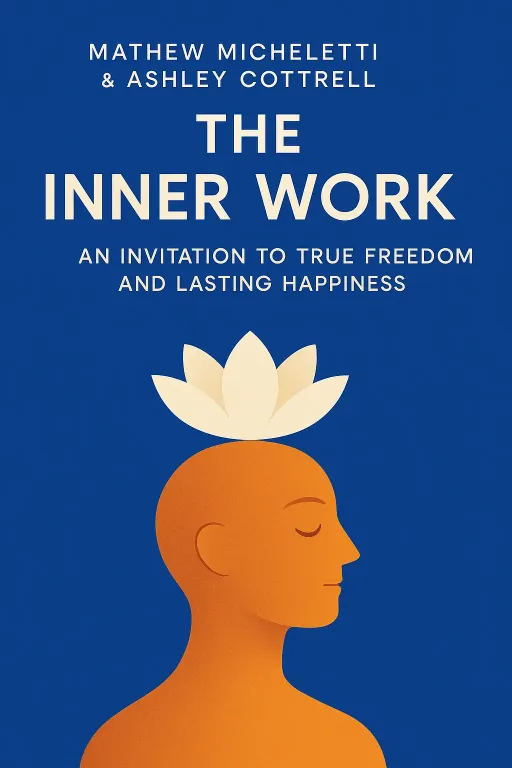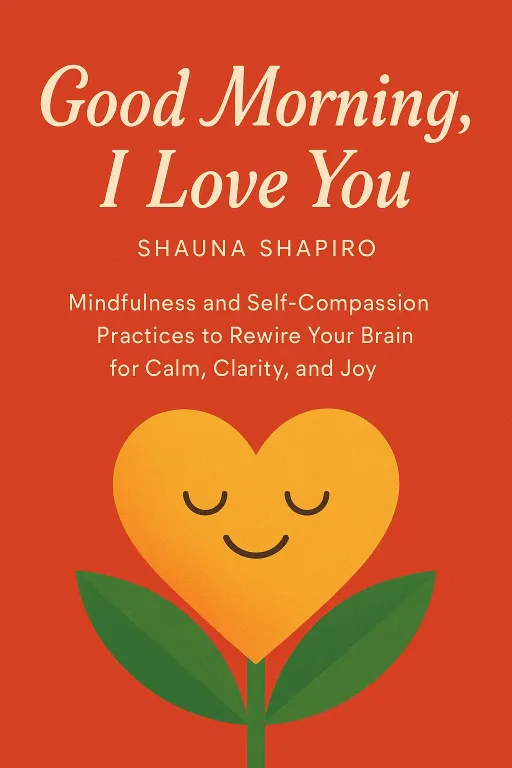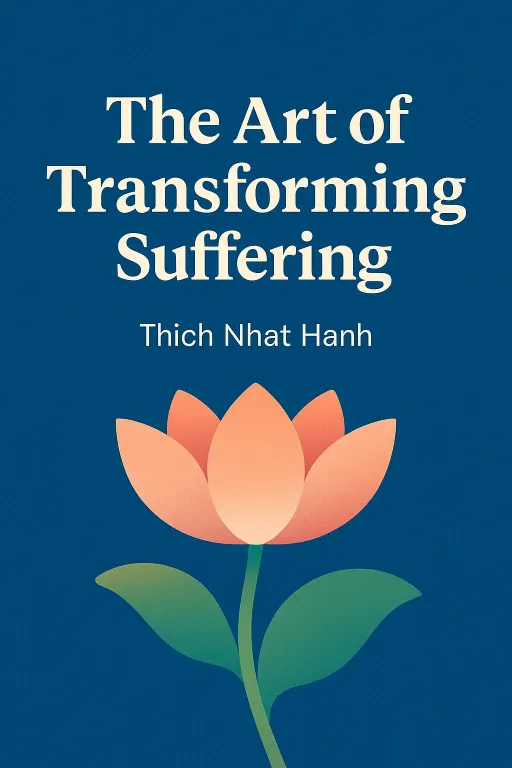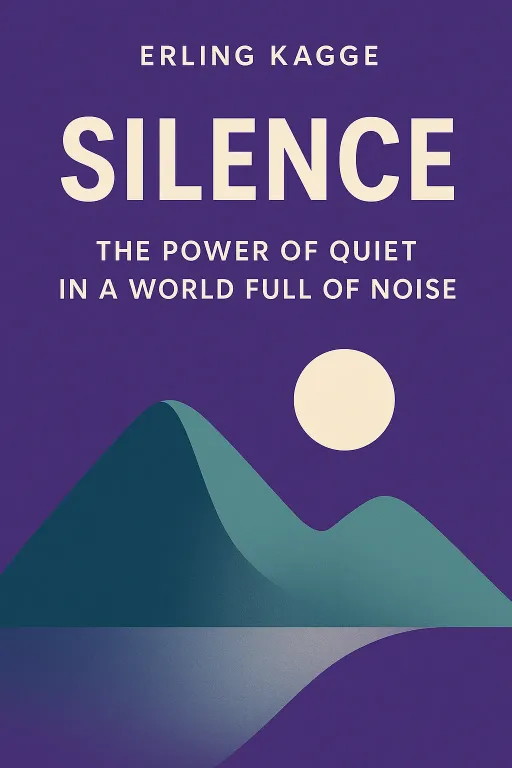
Can Silence Grow Your Brain?
12 minReconnecting to the Power and Beauty of Quiet
Golden Hook & Introduction
SECTION
Laura: Okay, Sophia. The Lost Art of Silence. Review it in exactly five words. Sophia: Hmm. Let me think. Okay, I've got it: 'Quiet is loud, noise is empty.' Laura: Ooh, I like that. That’s very poetic. Mine is: 'Your brain on silence is… magic.' Sophia: Magic? Or just really, really bored? I feel like we need to unpack that. My brain on silence usually just starts making a grocery list or replaying an awkward conversation from 2011. Laura: Well, that's exactly the tension we're getting into today. We are unpacking that very idea with the book The Lost Art of Silence by Sarah Anderson. And what's so fascinating is that Anderson isn't some lifelong monk who has had it all figured out from a mountaintop. She actually founded the famous Travel Bookshop in London—yes, the one from the Notting Hill movie—and has this incredible academic background, with an MA in the psychology of religion. Sophia: Wait, the Notting Hill bookshop owner wrote a book about silence? That’s an amazing detail. That shop was the opposite of silent; it was a hub of stories and people and, well, Hugh Grant. Laura: Exactly. She comes at this not from a place of perfect, pre-packaged zen, but from a world absolutely full of noise and stories. And for her, as we'll see, silence wasn't always this beautiful, magical thing. It started somewhere much darker.
The Duality of Silence: From Personal Shield to Profound Connection
SECTION
Sophia: Darker? That’s not what I expected. When you hear "the power of silence," you think of meditation, peace, and calm. You don't really think of darkness. Laura: And that’s the first big, counter-intuitive idea in the book. For the author, her first deep, formative experience with silence was as a defense mechanism. When she was just ten years old, she was diagnosed with a rare form of cancer and had to have her left arm amputated. Sophia: Oh, wow. At ten? That’s devastating. Laura: Completely. And as you can imagine, in the England of the 1950s, this was something that made her feel incredibly different and self-conscious. So she developed a strategy to cope: profound silence. She simply refused to talk about it. She wouldn't acknowledge it, and she used her quietness as a shield to keep people's questions and, maybe worse, their pity, at a distance. Sophia: That makes a painful amount of sense. If you don't talk about it, maybe it's not real. It’s a wall you build with quiet. Laura: A perfect way to put it. She describes in the book these agonizing teenage parties. She’d dread them so much she would sometimes lock herself in the bathroom and just scream beforehand. When she was forced to go, she’d stand against a wall, wearing a white cardigan to hide her arm, just hoping no one would talk to her. She tells this one story about a boy whose mother told him to be "nice" to her by asking her to dance, along with two other girls deemed 'pity cases.' Sophia: That is just heartbreaking. It’s the kind of well-intentioned cruelty that’s almost worse than outright meanness. And her silence was her only armor against that. Laura: It was. So for years, silence for her was synonymous with loneliness, anxiety, and hiding. It wasn't a choice for spiritual growth; it was a necessity for survival. This continued until she was in her early twenties and went to America. She found that people there were much more direct, almost unembarrassed, about asking what happened. And that directness, that breaking of the unspoken rule, finally allowed her to break her own silence. Sophia: So the noise of American bluntness actually healed the wound that British quietness had been preserving? That’s a fascinating paradox. Laura: It is. And it sets up this central theme: silence has a dual nature. It can be a prison, or it can be a sanctuary. It all depends on the context and the intention. Later in life, she sought out a very different kind of silence. She went on a silent Buddhist retreat in Spain. Sophia: Okay, so this is the silence we all picture. Sitting on a cushion, trying not to think about emails. How did that go for her, after her early experiences? Laura: It was transformative, but not in the way you'd think. It wasn't just about her own inner peace. She was in a group of people, all meditating and eating their meals in total silence for days. And she discovered something profound. Without words, without the usual social chatter and posturing, you start to connect with people on a completely different level. Sophia: How does that even work? You’re not talking, but you’re connecting? Laura: She describes it as a kind of shared vulnerability. You’re all in the same boat, wrestling with your own thoughts. You notice the small things—the way someone sighs, the look in their eyes across the dining hall. The book quotes the writer Ronald Rolheiser, who went on a similar retreat and said the silence was "a powerful language, stronger than words." Anderson found that this shared, intentional silence created a bond with the other participants that felt more real and deep than many spoken friendships. Sophia: Wow. So she went from a silence that isolated her from everyone to a silence that connected her more deeply to strangers. That’s a powerful journey. It makes you realize that not all silences are created equal. Laura: Precisely. There’s the silence of avoidance and the silence of presence. And her life story is the bridge between those two worlds. It really challenges you to think about the silences in your own life—which ones are walls, and which ones could be bridges?
The External & Internal Quest for Quiet
SECTION
Sophia: That makes me wonder, then. After she reclaimed silence as a positive force, did she go looking for it? I mean, if you’re the founder of a bustling bookshop in the middle of London, quiet can't be easy to come by. Laura: That's the perfect pivot to the next part of the book. She absolutely did. She became a seeker of silence, and the book is filled with these incredible stories of her travels to some of the quietest places on Earth. It’s part adventure travelogue, part philosophical quest. Sophia: Okay, give me an example. Where do you go for top-tier, premium-grade silence? Laura: How about Antarctica? In 2005, she was on a Russian icebreaker, and they took these small inflatable dinghies out to get closer to the massive, blue icebergs. At one point, the guide had everyone cut their engines. All at once. Sophia: I can just imagine that. The sudden stop. Laura: She said the silence was total. It was so absolute it felt like a physical presence. And then, in that complete stillness, it began to snow. Softly. She describes the feeling not as emptiness, but as a sense of "completeness." A moment of perfect harmony where the world just clicked into place. The book quotes the explorer Richard E. Byrd, who experienced a similar thing alone in Antarctica, saying he found "Harmony, that was it!" Sophia: That sounds incredible. Almost supernatural. But again, Antarctica is a bit of a stretch for a weekend getaway. It feels like these experiences are reserved for extreme explorers. Laura: And that's the exact point the book pushes back on. It presents these extreme stories to make a deeper point. Let me give you another, even more intense example. The book tells the story of Christopher Knight, better known as the North Pond Hermit. Sophia: Oh, I think I've heard of him! The guy who just… vanished into the woods? Laura: For 27 years. He lived in the woods of Maine, completely alone and in near-total silence. He spoke only one word—"hi"—to a hiker in all that time. He survived by stealing supplies from nearby cabins. When he was finally caught, the journalist Michael Finkel, who wrote a book about him, visited his campsite. Finkel said the quiet was so profound, so absolute, that it "literally made my ears ring." Sophia: Twenty-seven years. That’s not a retreat; that’s a whole other life. What does that kind of silence do to a person? Laura: Well, this is where it gets really interesting and connects back to your "magic or boredom" question. Knight said that in that perfect quiet, he lost the boundary between himself and his surroundings. He felt connected to everything. He never felt lonely. And here's the science part that Anderson brings in: studies have shown that sustained periods of silence can actually lead to neurogenesis—the growth of new cells in the hippocampus, the part of the brain related to memory, learning, and emotion. Sophia: Hold on. So you’re telling me that being in silence can literally, physically, grow your brain? And by extension, being constantly bombarded with noise, with notifications, with podcasts like this one… Laura: ...might be doing the opposite. The book doesn't say it that explicitly, but it lays out the evidence. The constant stimulation of modern life keeps our brains in a reactive state. We're always processing, filtering, and responding. Silence is what gives the brain the space to rest, consolidate information, and, it seems, even regenerate. Sophia: That is a genuinely unsettling thought. It reframes silence from a luxury to a biological necessity, like sleep or water. But the hermit's story is also a bit scary. It's one thing to seek quiet, it's another to completely erase yourself from society. Laura: Absolutely. And Anderson is not advocating for everyone to become a hermit. She uses these stories—the sublime beauty of Antarctica, the extreme isolation of the hermit—as poles on a map. They show us what's possible at the far edges of human experience. But the real takeaway is that the most important journey isn't to a remote forest or a frozen continent. The real quest is internal. Sophia: The quest for a quiet mind, even when you’re stuck in traffic. Laura: Exactly. The book features a great story from the writer Tim Parks, who was suffering from chronic pain and went on a silent retreat. He was a total skeptic. But he had a breakthrough when he realized that inner silence wasn't about blocking out external sounds. He wrote, "Silence is your ability not to react with irritation, but to soak up these sounds into an intense inner stillness." He learned to just let the sound of a barking dog or a passing car wash over him without judgment. Sophia: That’s a game-changer. It means silence isn't something you have to find, it's something you have to cultivate. It’s a skill. An art, even. A lost art. Laura: There you go. You just wrote the book's tagline. It’s not about the absence of noise, but the presence of a certain kind of attention.
Synthesis & Takeaways
SECTION
Sophia: So, when you put it all together—Sarah Anderson's personal story of using silence as a shield, and then these epic quests for external quiet—what’s the final picture? What's the core message we should walk away with? Laura: I think the core message is that our relationship with silence is a journey that mirrors our relationship with ourselves. For Anderson, she first had to confront her own inner noise—the pain and trauma of her past—before she could truly embrace silence as a source of connection and peace. Her journey from a silent, scared teenager to a woman seeking out the quietest places on earth is a metaphor for all of us. Sophia: That makes a lot of sense. We can’t just parachute into a silent retreat and expect instant peace if our minds are a raging civil war of anxieties and to-do lists. Laura: Precisely. The book suggests the external quest and the internal quest are two sides of the same coin. You can go to Antarctica, but if your mind is noisy, you won't find what you're looking for. And conversely, you can find profound stillness in the middle of a city if you've cultivated that inner capacity. The ultimate goal isn't to escape the world, but to be more present within it. Sophia: I love that. It feels so much more empowering. So the fundamental question the book leaves us with isn't 'Where can I go to escape the noise?' but rather, 'How can I learn to be quiet right where I am?' Laura: That's it exactly. It's about learning to listen differently. Not just to the world around you, but to the world inside you. There's a beautiful quote from the spiritual teacher Ram Dass that the book includes, and it perfectly sums it all up: "The quieter we become, the more we hear." Sophia: "The quieter we become, the more we hear." That’s going to stick with me. It makes me want to find my own little pocket of silence today, even if it's just for five minutes. Laura: And that's the perfect takeaway. We'd actually love to hear from our listeners about this. What are your silent spots? Is it a park bench, a library corner, or just the two minutes in your car after you've parked but before you get out? Let us know. We're always curious about how these ideas land in the real world. Sophia: A great idea. Find us on our socials and share your slice of silence. Laura: This is Aibrary, signing off.
